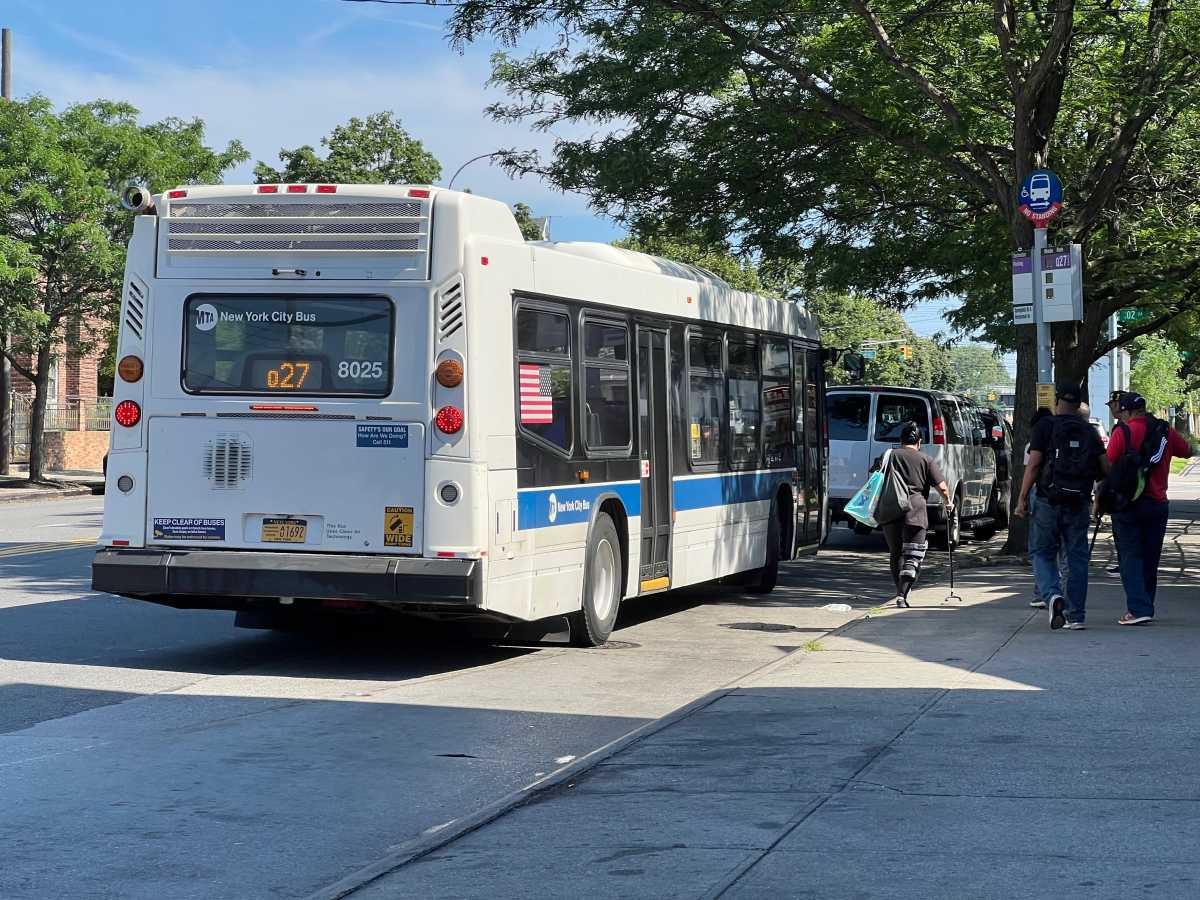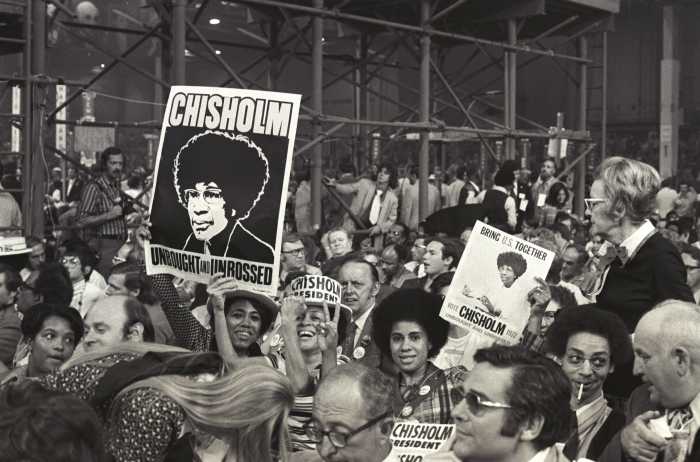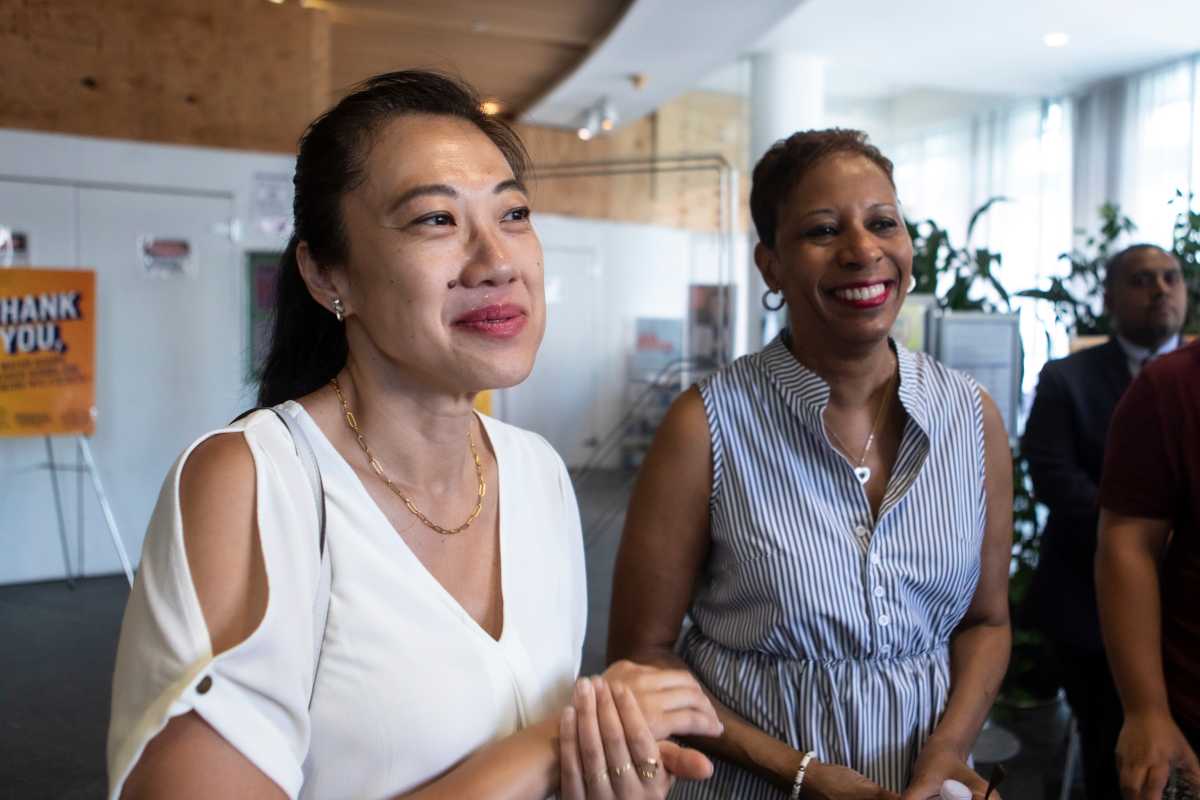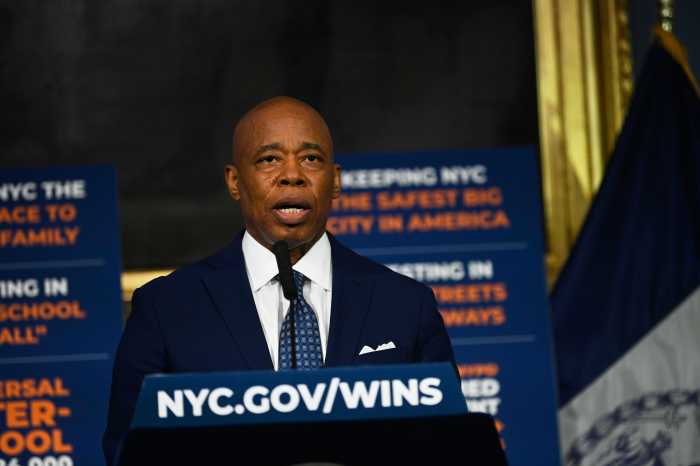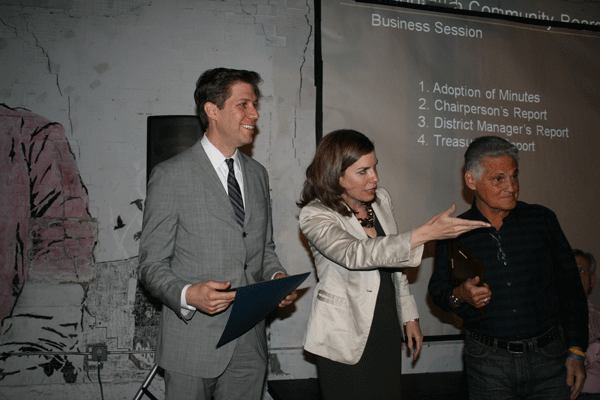
Come June, principal Robert Rhodes is leaving Millennium High School, which he helped found and where he served as principal for 10 years. Last week, Rhodes was honored by Community Board 1 for his distinguished service at Millennium over the years.
BY ALINE REYNOLDS | Why are you leaving Millennium? I have had an amazing experience here, but I started to think that I probably have two or three more 10-15 year projects that I’d like to get involved in before I’m done with my working life. I had just started to meet with a bunch of people to try to figure things out, and I stumbled into this other opportunity: becoming principal of Horace Greeley High School in Chappaqua, N.Y. The school’s a little bit larger — that’ll be something a little bit different for me — but there was a lot of investment made in the school, and it has similar values as Millennium, so I think it’s going to be another really good match.
Who’s taking your place? We don’t know yet. The city Department of Education has a formal process called a C-30, named after the Chancellor’s regulation, and they’re in the middle of that process. People have already applied, and there’s going to be a committee that meets to interview the top candidates. My last day is June 30; a week or two before that, we’re hoping the committee will announce my successor.
Will you help make the selection? No — I do not sit on the committee.
What is your most memorable experience at Millennium? There’s no way I could pick out one. The only thing I can say is, every day I feel is an amazing accomplishment. When we started the school, I think we all knew it was going to be a good school. I wasn’t worried about that. But I had no idea what a great school it would be. It has exceeded my wildest dreams, whether it’s the level of professionalism of staff, the performance of students, or the architecture. It’ll always be the crowning jewel in my career. And every day I walk in, I appreciate that. I’m going to miss being here a lot!
There’s so much talk these days about overcrowding in Downtown’s elementary schools yet little-to-no discussion about space shortages in the local high schools. Can you shed some light on that? Sure. When we opened Millennium, the number of schools like Millennium was much smaller. I never guessed our application numbers would have exploded over the years like they have. We’ve been operating at 120 percent capacity for several years now. Even though there are twice as many screened high schools like Millennium as there were 10 years ago, we still see the application numbers continue to increase. And, unlike elementary schools, high schools don’t keep wait lists — you’re either in or you’re not in, and if you don’t get in, you have to go somewhere else.
So high schools such as Millennium are packed to the brim, as well. Yes. I think there are two different problems: The number of overall seats in the system and the kind of seats that are available. Either way, you need many more high-performing high schools in the city, wherever you can get them. There’s a great demand for them Downtown and in lots of other places in the city. I’m not sure what the overall shortage of seats is in the system, but I do know that, in the case of Millennium and many other schools, we receive application numbers far, far in excess of what we’re able to accommodate, which suggests there’s a really high demand for seats.
You had been a strong supporter of Millennium’s expansion into 26 Broadway, which the D.O.E. has vetoed, rather than open a sister school in Brooklyn, which the Department did this year. Why? It had been my dream that we could open a sister school within a few blocks, so that each school could maintain the sense of community and allow students to cross-register for specialized and advanced courses not unlike college consortiums in Western Massachusetts and California, and figure out ways to graphically and educationally collaborate. Those students have access to something like university-level offerings while maintaining their own small college communities.



